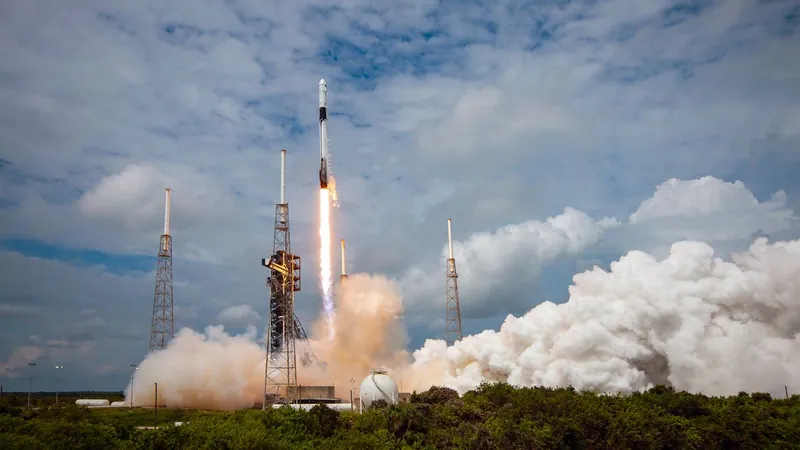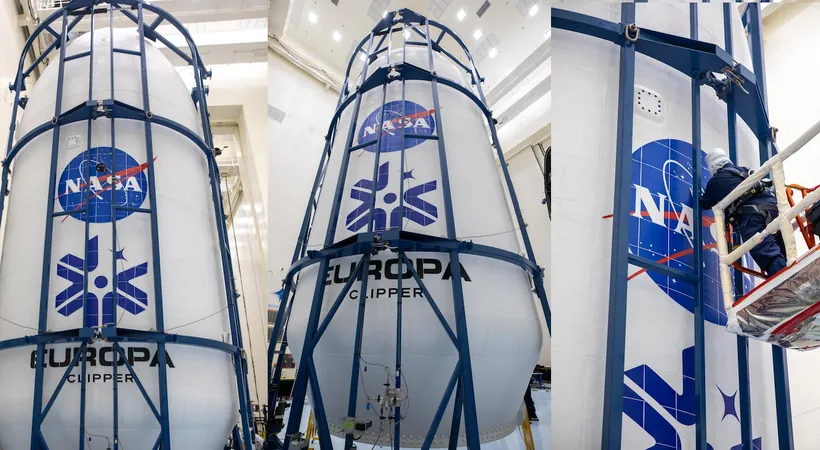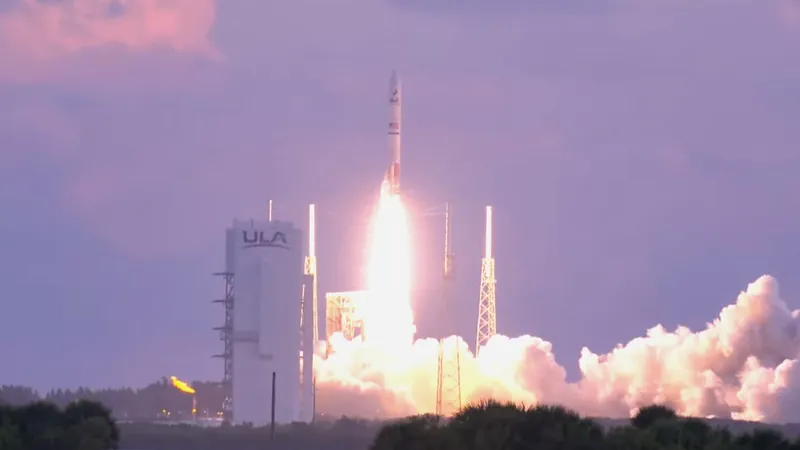
FAA Demands Thorough Investigation into SpaceX Crew-9 Launch Anomaly - What This Means for Future Missions!
2024-10-01
The U.S. Federal Aviation Administration (FAA) has mandated a detailed investigation into an unsettling incident that occurred during SpaceX's Crew-9 astronaut launch on September 28. This launch successfully transported a Crew Dragon capsule carrying NASA astronaut Nick Hague and Russian cosmonaut Aleksandr Gorbunov to the International Space Station (ISS). However, shortly after capsule deployment, the Falcon 9 rocket's upper stage encountered complications, which SpaceX later termed an “off-nominal deorbit burn.” This malfunction caused the upper stage to land in the ocean outside of its predetermined disposal zone. While the Falcon 9’s first stage is designed for reuse, the upper stage is not.
In light of this event, SpaceX has decided to pause all upcoming launches while a thorough investigation is conducted. This inquiry will be overseen by the FAA, reinforcing the gravity of the incident, as it's deemed necessary and not merely suggestive.
An FAA official stated, “We are aware of the anomaly that occurred during the SpaceX NASA Crew-9 mission. Thankfully, no injuries or damages to public property have been reported, but we are requiring an investigation due to the Falcon 9’s second stage landing outside the designated hazard area.”
This incident marks the third Falcon 9 concern that SpaceX has faced in under three months. In July, the upper stage experienced a liquid-oxygen leak, leading to the loss of 20 Starlink satellites. Following that, in August, there was a failure during a landing attempt after a successful Starlink launch, compounding the challenges SpaceX is currently facing.
While the duration of SpaceX's launch hiatus remains uncertain, it could have significant repercussions for the company’s busy launch schedule. Notably, SpaceX has high-profile missions slated for October, including NASA’s Europa Clipper mission. This mission, aimed at exploring the icy moon of Jupiter, Europa, is scheduled for launch atop a Falcon Heavy rocket during a critical 21-day launch window beginning on October 10. Both Falcon Heavy and Falcon 9 rockets utilize the same upper stage technology, emphasizing the potential impact of the current pause on future launches.
As the investigation unfolds, the space community watches closely. The stakes are high, with SpaceX leading the charge in commercial spaceflight and satellite deployment, so every glitch can ripple through their ambitious plans.
Stay tuned as we keep you updated on this gripping story and its implications for SpaceX’s future missions!









 Brasil (PT)
Brasil (PT)
 Canada (EN)
Canada (EN)
 Chile (ES)
Chile (ES)
 España (ES)
España (ES)
 France (FR)
France (FR)
 Hong Kong (EN)
Hong Kong (EN)
 Italia (IT)
Italia (IT)
 日本 (JA)
日本 (JA)
 Magyarország (HU)
Magyarország (HU)
 Norge (NO)
Norge (NO)
 Polska (PL)
Polska (PL)
 Schweiz (DE)
Schweiz (DE)
 Singapore (EN)
Singapore (EN)
 Sverige (SV)
Sverige (SV)
 Suomi (FI)
Suomi (FI)
 Türkiye (TR)
Türkiye (TR)